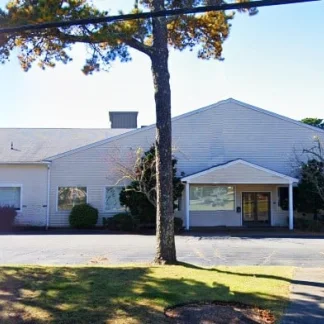Child and Family Services
Child and Family Services is a private rehab located in Hyannis, Massachusetts. ...
Yarmouth Comprehensive Treatment Center is a private rehab located in South Yarmouth, Massachusetts. Yarmouth Comprehensive Treatment Center specializes in the treatment of alcoholism, drug addiction, dual diagnosis, opioid addiction, and substance abuse.
Contact us for more information: (508) 398-5155

Connect with Yarmouth Comprehensive Treatment Center by calling their admissions team directly.
(508) 398-5155 Website Get DirectionsThe Commission on Accreditation of Rehabilitation Facilities (CARF) is a non-profit organization that specifically accredits rehab organizations. Founded in 1966, CARF's, mission is to help service providers like rehab facilities maintain high standards of care.
CARF Accreditation: Yes
The Substance Abuse and Mental Health Services Administration (SAMHSA) is a branch of the U.S. Department of Health and Human Services. Established in 1992 by congress, SAMHSA's mission is to reduce the impact of substance abuse and mental illness on American's communities.
SAMHSA Listed: Yes
Group therapy is any therapeutic work that happens in a group (not one-on-one). There are a number of different group therapy modalities, including support groups, experiential therapy, psycho-education, and more. Group therapy involves treatment as well as processing interaction between group members.
Trauma therapy addresses traumatic incidents from a client's past that are likely affecting their present-day experience. Trauma is often one of the primary triggers and potential causes of addiction, and can stem from child sexual abuse, domestic violence, having a parent with a mental illness, losing one or both parents at a young age, teenage or adult sexual assault, or any number of other factors. The purpose of trauma therapy is to allow a patient to process trauma and move through and past it, with the help of trained and compassionate mental health professionals.
Trauma therapy addresses traumatic incidents from a client's past that are likely affecting their present-day experience. Trauma is often one of the primary triggers and potential causes of addiction, and can stem from child sexual abuse, domestic violence, having a parent with a mental illness, losing one or both parents at a young age, teenage or adult sexual assault, or any number of other factors. The purpose of trauma therapy is to allow a patient to process trauma and move through and past it, with the help of trained and compassionate mental health professionals.
Child and Family Services is a private rehab located in Hyannis, Massachusetts. ...
Hyannis Counseling Associates is a private rehab located in Hyannis, Massachuset...
Barstable Counseling & Edu Center is a private rehab located in Barnstable, ...
Cape Cod Hospital – Behavioral Health is a private rehab located in Barnstable, ...